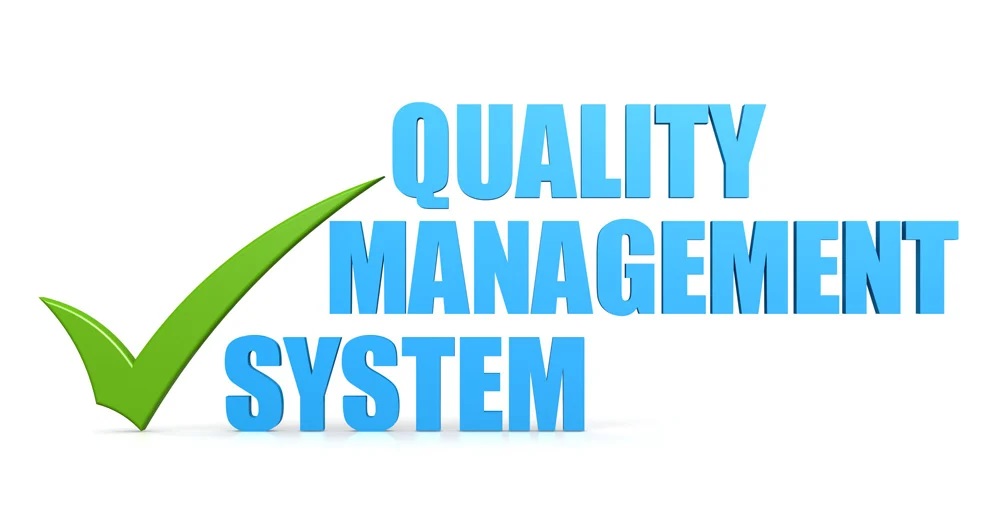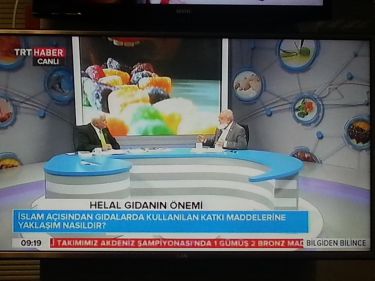Due to the facilitation and widespread use of goods and services in a global world, products and services have become standardized since the 1960s, and commercial enterprises and production facilities have started to establish and maintain a quality management system by searching for certain criteria. This system has become widespread because it enables production to be under control, recording every transaction, establishing a corporate management system instead of person-dependent management, and tracing and analyzing the production. The tendency to establish a quality system, which started in the West, has spread to Asia. In the 1990s, Chinese firms chose to establish a quality management system as their first target as a way of reaching the other markets, and almost no Chinese companies were left without the ISO 9000 system. The same tendency has started in Turkey around the mid-1990s. Firms that were encouraged for exporting had to establish one or more systems, depending on their field of work. When various importing countries required different documents and certificates for the goods, this trend has gained acceleration.
A True Quality Management System Provides;
- Efficient and good management
- Employees who become a part of the quality as well as being responsible for it
- Care about customer satisfaction by knowing the customer expectations
- Deduction in the cost of poor quality and losses
- A dynamic infrastructure for the development
- Standardized product quality
- Internal interaction and communication of the firm
- Institutionalization of the company or the business
- Increased competitive power.
So far everything is beautiful and impressive, but, I wish it were like this.
In Indonesia, one of the countries with the largest Muslim population in the world, pig-based additives were detected in more than 3000 tons of products of A… company. Upon some denunciations, this giant factory surrounded by the police and the investigations revealed that pork additives were used in the production for a long time because it was more economical, and although the company had internationally valid quality management documents as well as the Halal certificate, it was revealed that the recipe was deliberately changed in order to earn more money. Judicial and administrative investigations were opened, but the fat is already in fire and what happened has happened to Muslim consumers. Muslim consumers were fed with pigs, which is clearly Haram, by the hands of Muslims in a Muslim country.
A Chinese company with GMP, which is one of the indispensable systems of pharmaceutical production, deliberately used the additive taken from another animal because it could not find a “reasonable price and quality” pig. This incident, stemming from commercial concerns, resulted in the deaths of 81 people and the serious illness of 785 people, as far as detected.
While a local company was aiming to export its products to other countries, their customers demanded ISO and CE quality certificates. Facing with such a requirement, that local company was brooding over a solution, which ended up with the advice of a friend of theirs. Following this advice, they bought the ISO and CE certificates at a very attractive price within a week. Crown it all, the “quality firm” gave a free 1-year valid Halal System certificate due to their good relations. Thus, this company had the opportunity to market its Halal certified products in the international market.
Another instance comes from a manager of a very famous company, who was not able to collect enough positive customer feedback for the quality system audit to be carried out a week later. One evening after the shift, he prepared the file by filling in the questionnaire forms on behalf of his important customers and signed them with different styles. Of course, the firm passed the inspection with a very good result.
There is even no need of going far away. Even in our country, there are numerous firms that have obtained these so-called quality certificates but published in the adulteration list of the Ministry of Agriculture and Forestry in Turkey. Abuse of these quality certificates can be observed all over the world.
The examples mentioned above can be increased, but our topic is to emphasize that the Halal certificate is not an ordinary piece of paper, and it is extremely wrong to issue Halal certificate based on man-made quality systems. We have listed the benefits of the Quality Management System above. If someone pays attention, s(he) can easily realize that there is no focus on human or consumer, but making the business more efficient and having a standardized manufacturing process. The standards may have been well-thought and developed over the decades; however, the important thing is the implementation of them.
The Halal certificate has to obtain its standards from Islam and the basis is the Holy Qur’an and the Sunnah. Since religion is a matter of belief, the Halal certificate has to be based on the same belief. When the producer, who obtains a certificate, brings his profit to the fore as the above-mentioned examples, he acts by considering his own pocket in the production. Whereas, the Halal Certificate dictates that the manufacturer or the service provider has to act by fearing Allah (SWT). He knows that if he engages in wrong-doings, he will see the punishment not just in this world, but in the Akhirah (hereafter). In order to achieve this goal, the Halal certificate has to be issued by a reputable/reliable and Islamic institution. Because of this, there is the necessity of employing a Muslim Halal Internal Coordinator in the firms, especially the ones that are owned by the non-Muslims.
As GIMDES, we do not give credit to the quality system or the quality certificate, which was raised by the West and dictated to the rest, because of various reasons, which a few of them are mentioned above. Having ISO, GMP, HACCP or whatever the name does not provide a right for a firm to obtain or ease the process of obtaining the Halal certificate. Such kind of certificates might be beneficial for the firm, but they do not have an impact on the Halal certificate. On this occasion, once again, we take it as our duty to warn all the institutions and firms all over the world to avoid accepting and relying on the quality certificates of non-Islamic systems in the process of issuing Halal certificates.





